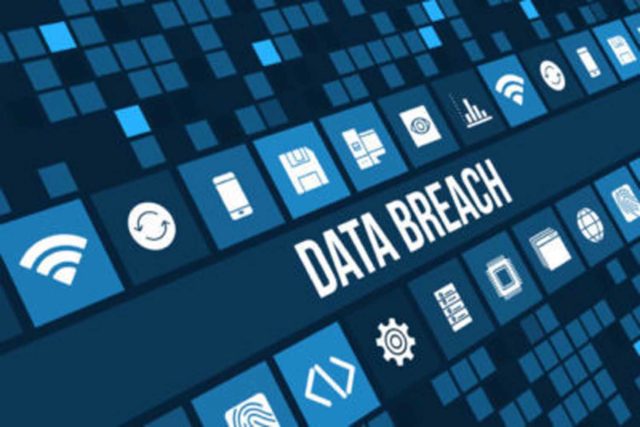How do software ownership issues affect technology companies?
In the dynamic landscape of technology, software and systems ownership issues play a pivotal role in shaping the operations of Florida-based businesses. These issues encompass the legal and ethical considerations surrounding the ownership, licensing, and usage of software and digital systems. For technology companies in Florida, navigating these complexities is essential for maintaining competitiveness and ensuring compliance with relevant laws and regulations.
Understanding the intricacies of software and systems ownership is crucial for technology companies to safeguard their intellectual property rights and mitigate potential legal risks. From proprietary software developed in-house to third-party applications and cloud-based systems, businesses must establish clear ownership rights and usage permissions to avoid disputes and protect their assets.
By proactively addressing software and systems ownership issues, technology companies in Florida can mitigate legal risks, foster innovation, and maintain a competitive edge in the ever-evolving digital landscape.
Need help regarding software ownership issues? Schedule your consultation today with a top technology law attorney.
In Florida, which laws and regulations apply to software ownership issues?
In Florida, several laws and regulations govern software and systems ownership issues, providing guidance and legal frameworks for technology companies operating within the state.
One such regulation is the Florida Uniform Trade Secrets Act (FUTSA), which provides statutory protection for trade secrets, including proprietary software algorithms, source code, and system architectures. Under the FUTSA, businesses can take legal action against individuals or entities that misappropriate or unlawfully disclose their trade secrets, seeking remedies such as injunctive relief, damages, and attorney’s fees.
Additionally, Florida’s contract law principles, as codified in the Florida Uniform Commercial Code (UCC), govern the formation and enforcement of contracts related to software licensing, development agreements, and technology transactions. Ensuring that contracts are drafted with clarity and specificity regarding ownership rights, usage permissions, and dispute resolution mechanisms is essential for mitigating legal risks and fostering mutually beneficial business relationships.
Furthermore, federal laws such as the Digital Millennium Copyright Act (DMCA) provide copyright protections for software and digital content, prohibiting unauthorized reproduction, distribution, or circumvention of technological protection measures. Compliance with the DMCA’s provisions, including implementing digital rights management (DRM) technologies and enforcing end-user license agreements (EULAs), is critical for technology companies to safeguard their intellectual property rights and combat software piracy.
What are common issues regarding software ownership that lead to litigation?
The following issues are among the most common in actions regarding software ownership:
- Ambiguous Ownership Rights: Lack of clarity regarding ownership rights between employers and employees regarding software developed within the scope of employment can lead to disputes over intellectual property rights and usage permissions.
- Unauthorized Use of Third-party Software: Failure to obtain proper licensing or adhere to terms of service agreements when using third-party software can result in litigation for copyright infringement or breach of contract.
- Misappropriation of Trade Secrets: Improper handling or disclosure of proprietary information, such as source code or system architectures, can lead to claims of trade secret misappropriation and subsequent litigation.
- Inadequate Contractual Protections: Poorly drafted contracts, including employment agreements, non-disclosure agreements, and licensing agreements, may fail to adequately address ownership rights, usage permissions, and dispute resolution mechanisms, increasing the risk of litigation.
We are value-based attorneys at Jimerson Birr, which means we look at each action with our clients from the point of view of costs and benefits while reducing liability. Then, based on our client’s objectives, we chart a path to seek appropriate remedies.
To determine whether your unique situation may necessitate litigation, please contact our office to set up your initial consultation.
What steps should businesses take to minimize the risk of litigation over software ownership issues?
- Comprehensive Contracts: Ensure that employment contracts, non-disclosure agreements, and licensing agreements are carefully drafted to clearly define ownership rights, usage permissions, and dispute resolution mechanisms.
- Regular Audits: Conduct regular audits of software assets and systems to verify compliance with licensing agreements, identify potential infringement risks, and address any unauthorized use.
- Employee Training: Provide comprehensive training to employees on intellectual property rights, trade secret protection, and compliance with software licensing agreements to mitigate the risk of inadvertent infringement.
- Risk Assessment: Conduct thorough risk assessments to identify potential vulnerabilities in software and systems ownership arrangements, and implement proactive measures to mitigate legal risks.
- Legal Consultation: Seek guidance from experienced legal professionals specializing in intellectual property law and technology transactions to ensure compliance with relevant laws and regulations and mitigate the risk of litigation.
Frequently Asked Questions
Can businesses transfer ownership of software developed by employees?
Yes, businesses can transfer ownership of software developed by employees through explicit contractual agreements that assign intellectual property rights to the employer.
Are open-source software licenses enforceable in Florida?
Yes, open-source software licenses are enforceable in Florida, and businesses must comply with the terms of open-source licenses when using open-source software in their operations.
What legal remedies are available for businesses in case of software piracy?
Legal remedies for businesses in case of software piracy may include injunctive relief, damages, and attorney’s fees, pursued through civil litigation under copyright law or trade secret law.
Have more questions about a software ownership-related situation?
Crucially, this overview of software ownership issues does not begin to cover all the laws implicated by this issue or the factors that may compel the application of such laws. Every case is unique, and the laws can produce different outcomes depending on the individual circumstances.
Jimerson Birr attorneys guide our clients to help make informed decisions while ensuring their rights are respected and protected. Our lawyers are highly trained and experienced in the nuances of the law, so they can accurately interpret statutes and case law and holistically prepare individuals or companies for their legal endeavors. Through this intense personal investment and advocacy, our lawyers will help resolve the issue’s complicated legal problems efficiently and effectively.
Having a Jimerson Birr attorney on your side means securing a team of seasoned, multi-dimensional, cross-functional legal professionals. Whether it is a transaction, an operational issue, a regulatory challenge, or a contested legal predicament that may require court intervention, we remain tireless advocates at every step. Being a value-added law firm means putting the client at the forefront of everything we do. We use our experience to help our clients navigate even the most complex problems and come out the other side triumphant.
If you want to understand your case, the merits of your claim or defense, potential monetary awards, or the amount of exposure you face, you should speak with a qualified Jimerson Birr lawyer. Our experienced team of attorneys is here to help. Call Jimerson Birr at (904) 389-0050 or use the contact form to schedule a consultation.

We live by our 7 Superior Service Commitments
- Conferring Client-Defined Value
- Efficient and Cost-Effective
- Accessibility
- Delivering an Experience While Delivering Results
- Meaningful and Enduring Partnership
- Exceptional Communication Based Upon Listening
- Accountability to Goals











